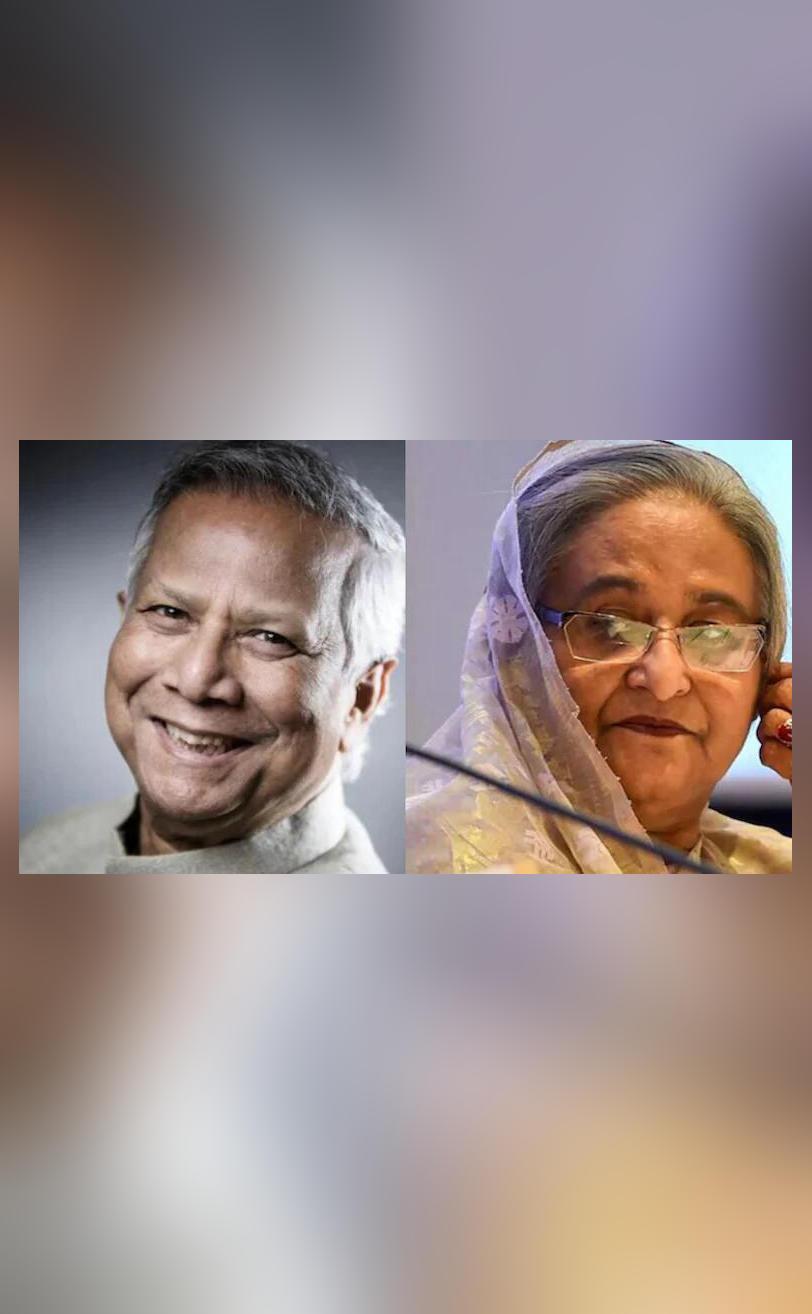
Title: He’s Selling Nation to US: Sheikh Hasina on Bangladesh’s Interim Govt Head Muhammad Yunus
Bangladesh has been embroiled in a political crisis since the last general election, with the country’s interim government led by Muhammad Yunus facing intense criticism from the opposition. The latest salvo has been fired by ousted Prime Minister Sheikh Hasina, who has accused the interim government head of “selling the nation to the US”. In a scathing attack, Sheikh Hasina claimed that Yunus has compromised the country’s sovereignty and national interests for personal gain.
According to reports, Sheikh Hasina made these remarks while addressing a rally in Dhaka, the capital city of Bangladesh. She alleged that Yunus has given in to American demands, compromising the country’s independence and security. This is not the first time that Sheikh Hasina has raised concerns about Yunus’s alleged ties to the US. In the past, she has accused him of being a pawn in the hands of foreign powers.
Sheikh Hasina’s remarks have sparked a heated debate in Bangladesh, with many questioning the credibility of the interim government and its ability to lead the country. The opposition has long accused the government of being corrupt and incompetent, and Sheikh Hasina’s latest comments are seen as a desperate attempt to discredit the interim government and undermine its legitimacy.
One of the key issues that Sheikh Hasina highlighted was the alleged sell-out of St Martin’s Island, a strategic location in the Bay of Bengal. She claimed that her father, the late President Sheikh Mujibur Rahman, had refused to give in to American demands to hand over the island to the US. This, she alleged, led to her father’s assassination, along with most of his family members, in 1975.
Sheikh Hasina also accused Yunus of giving the reins of the government to terrorists, who had fought against her government during her tenure as Prime Minister. This is a reference to the Bangladesh Nationalist Party (BNP), which is a major political party in the country. The BNP has been accused of having links with terrorist organizations, including the Jamaat-e-Islami, which is banned in the country.
The BNP and its allies have been protesting against the interim government, demanding that it step down and allow a new government to be formed through a fresh election. The opposition has also accused the government of rigging the last election, which led to the ousting of Sheikh Hasina’s government.
The interim government, on the other hand, has denied all allegations of wrongdoing and has accused the opposition of trying to undermine the country’s stability and security. Yunus has also defended his government’s actions, claiming that it is working to restore democracy and stability in the country.
The political crisis in Bangladesh is complex and multifaceted, with many different stakeholders and interests at play. The country’s military-backed government has been accused of being corrupt and authoritarian, with many calling for a return to democracy. The opposition, on the other hand, has been accused of being divided and ineffective, with many questioning its ability to lead the country.
In the midst of this crisis, Sheikh Hasina’s remarks have sparked a heated debate about the country’s future and its relationship with foreign powers. Many are questioning whether the country can truly be independent and sovereign if it is willing to compromise its national interests for personal gain.
The situation in Bangladesh is a reminder of the complex and often fraught relationships between governments and foreign powers. In a rapidly changing world, countries are increasingly looking to foreign powers for support and protection, but this can often come at a cost to their sovereignty and national interests.
In conclusion, Sheikh Hasina’s remarks about Yunus’s alleged ties to the US have sparked a heated debate in Bangladesh about the country’s future and its relationship with foreign powers. The political crisis in the country is complex and multifaceted, with many different stakeholders and interests at play. As the situation continues to unfold, it remains to be seen whether the country can truly be independent and sovereign, or whether it will continue to compromise its national interests for personal gain.



